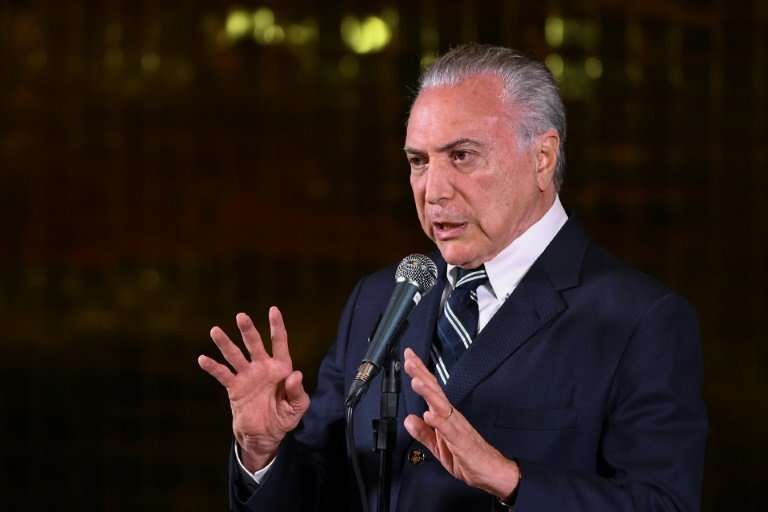First phase of Brazil's particle accelerator construction completed

Brazil President Michel Temer inaugurated the opening construction phase of a particle accelerator the size of the Maracana football stadium that will be used to make advances in medicine, nutrition, archeology, electronics, energy and the environment.
The particle accelerator, called Sirius, will be used in brain study research that could provide breakthroughs in the fight against degenerative diseases such as Parkinson's and Alzheimer's.
It measures 518 meters (566 yards) in circumference and is expected to cost 1.8 billion reis ($477 million) to build. It has been branded the Maracana of research and technology after the iconic football stadium in Rio de Janeiro that hosted the 2014 World Cup final.
"If we had never done anything in our government, but completed the project that we're inaugurating today, then we would have done a lot for the country," said Temer, a hugely unpopular leader who will hand over power to far-right president-elect Jair Bolsonaro on January 1.
"People always say Brazil is the country of the future. I would say, given this inauguration, that the future has already arrived."
The synchroton technology accelerates electron beams 35 times thinner than a hair up to almost the speed of light in ultra high vacuum tunnels guided by magnets.
The Brazilian particle accelerator, located in Campinas, some 90 kilometers (55 miles) from Sao Paulo, is from the latest generation.
"We are witnessing a Brazil that is striding forwards and is now part of the most select group of countries that have a fourth-generation electron accelerator," added Temer, quoted by public news agency Agencia Brasil.
Only one other such accelerator exists in the world, the MAX IV in Sweden.
Sirius will generate synchroton light, a source of electromagnetic radiation, of such intense brightness that it can reveal the structures of organic and inorganic material such as proteins, viruses, rocks, plants and metallic alloys, all in high resolution.
It will allow microparticles to be studied in detail. According to G1 news website, it would be capable of conducting research that takes the most advanced current technology 10 hours to complete, in just 10 seconds.
The next stage of the project is slated for the second half of 2019 while Sirius will be fully operational in 2021.
© 2018 AFP





















